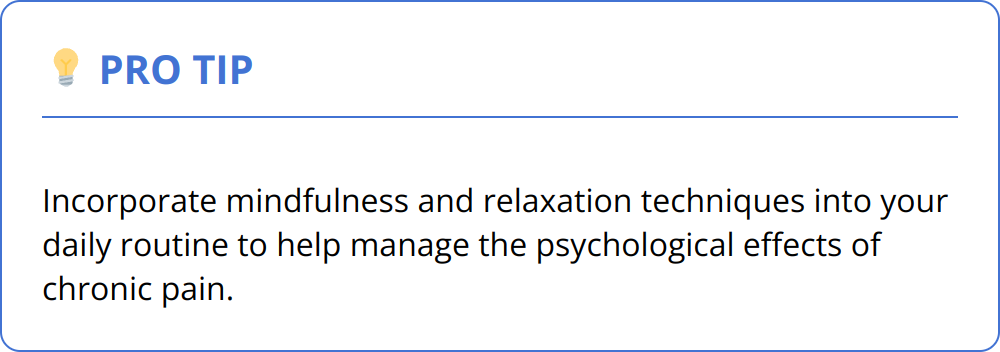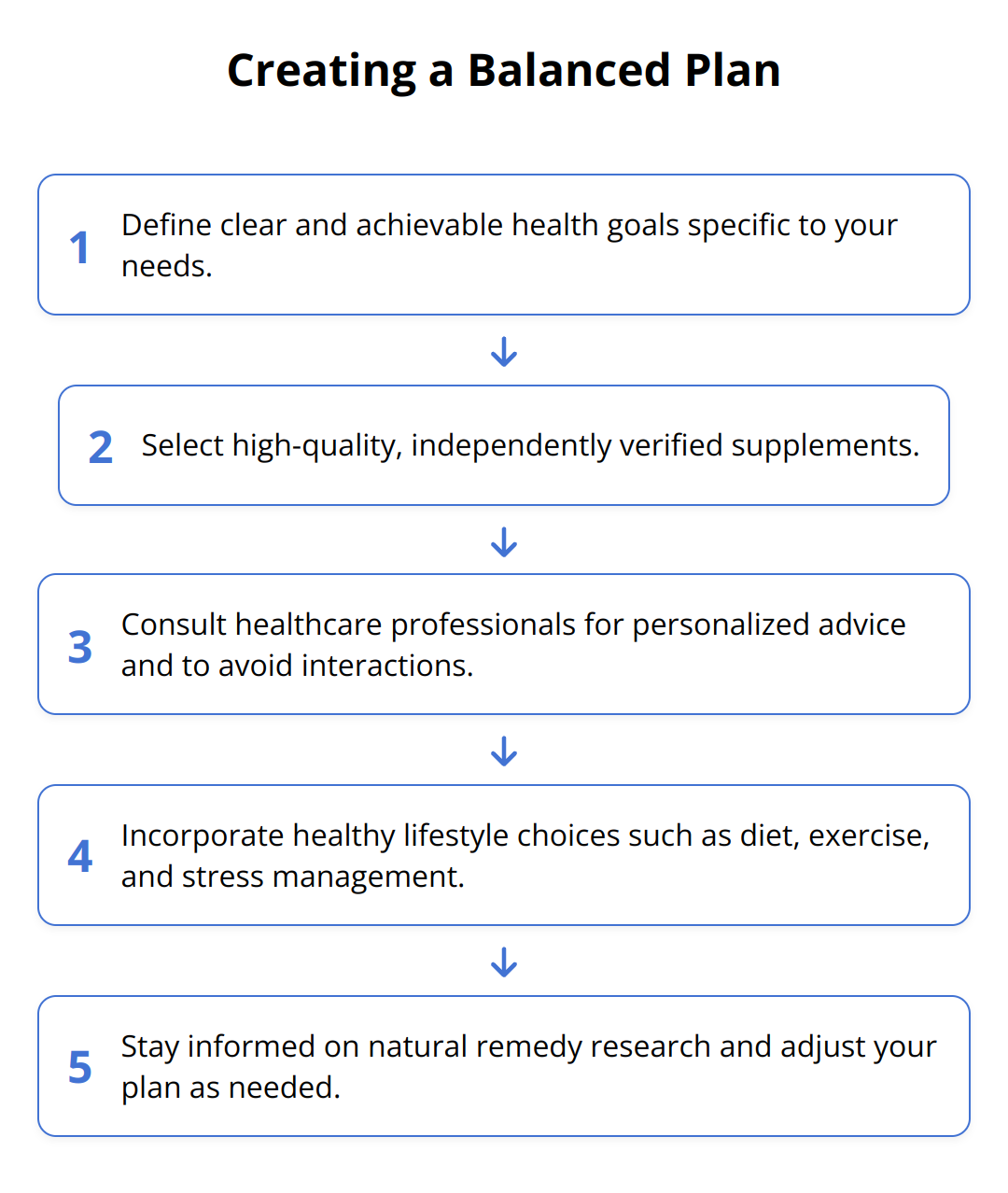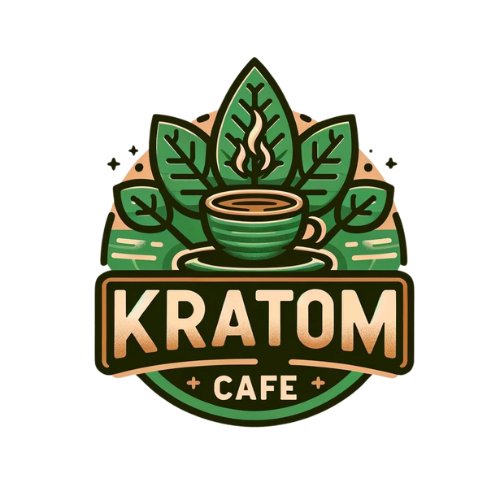Chronic pain affects millions worldwide, significantly impacting their everyday lives. We at Kratom Cafe understand the importance of finding effective, natural solutions to manage this relentless discomfort. Through this guide, we aim to explore a variety of natural remedies, including herbal supplements, that can offer relief and improve the quality of life for those suffering. Join us in exploring practical and accessible ways to integrate these solutions into your pain management routine.
Navigating Chronic Pain
Chronic pain is more than just a symptom; it’s an ongoing condition that can degrade the quality of life and impair daily functions. Understanding the complexity of chronic pain and its root causes is the first step toward managing it effectively. Chronic pain can stem from a variety of sources, ranging from injuries and surgeries to conditions like arthritis, fibromyalgia, and migraines. Unlike acute pain, which is a direct response to injury and typically fades as the body heals, chronic pain persists long beyond the expected period of healing, sometimes without a clear cause.
Impact on Daily Life
The impact of chronic pain on an individual’s life can be profound and far-reaching. It often leads to:
-
Reduced mobility and difficulty performing daily tasks
-
Increased reliance on medication, with the risk of side effects and dependency
-
Emotional effects, including depression, anxiety, and sleep disturbances
-
A strain on personal relationships and social interactions
-
Financial burden due to medical expenses and lost productivity
Common Causes
Several factors contribute to the development of chronic pain. These include, but are not limited to:
-
Inflammatory diseases, such as rheumatoid arthritis, which cause continuous inflammation and pain
-
Neuropathic pain, resulting from nerve damage or malfunction
-
Musculoskeletal pain associated with the bones, joints, muscles, and tissues
-
Conditions like fibromyalgia that affect the way the brain processes pain signals
-
Psychological factors that can exacerbate the perception of pain
Understanding these causes is pivotal. By identifying the underlying issue, individuals can tailor their management approach to address the root of the pain, potentially leading to more effective outcomes.
To manage chronic pain effectively, incorporating a holistic approach that combines medical treatment with natural remedies can be beneficial. Techniques such as massage therapy and physical activities like yoga can play a vital role in pain management. Incorporating natural supplements known for their pain-relieving properties, such as turmeric for its anti-inflammatory benefits, could also offer relief.
Practical Tips
For those dealing with chronic pain, here are some actionable steps:
-
Regularly consult with healthcare providers to monitor the condition and adjust treatments as necessary
-
Explore and integrate natural remedies and supplements, with professional guidance, to complement medical treatments
-
Stay active within personal limits to maintain mobility and reduce pain
-
Consider mental health support to address the emotional aspects of living with chronic pain
Managing chronic pain is a journey that requires patience, resilience, and a comprehensive approach. By understanding its impact and common causes, individuals can devise more targeted and effective strategies for relief.

Natural Pain Management Solutions
Exploring the world of natural remedies provides a beacon of hope for those entangled in the web of chronic pain. With an emphasis on herbal supplements, including kratom, alongside physical therapies and crucial lifestyle adjustments, this chapter unveils a range of strategies to combat pain without solely relying on conventional medicine.
Herbal Supplements: A Natural Respite
Herbal supplements stand out as a cornerstone in the natural management of chronic pain. Among the myriad of options, kratom has gained attention for its analgesic properties. Originating from Southeast Asia, this natural herb interacts with the body’s opioid receptors to alleviate pain. Users have reported significant pain relief, especially those struggling with conditions like arthritis and fibromyalgia. However, it’s vital to consult healthcare professionals to ensure its appropriate use and to understand its interaction with other medications.
Another noteworthy supplement is turmeric, recognized for its curcumin content. Curcumin is a potent anti-inflammatory agent that rivals over-the-counter pain relievers in effectiveness without the associated risks of long-term pharmaceutical use.
Ginger, similarly, offers a double benefit as both an anti-inflammatory and an analgesic, making it ideal for musculoskeletal pains and discomfort.

Physical Therapies: Strengthening Body and Mind
Yoga and acupuncture emerge as invaluable allies in the battle against chronic pain. Yoga, combining physical postures, breathing exercises, and meditation, offers a holistic approach to pain management. It not only improves physical flexibility and strength but also aids in stress reduction, which is often a contributing factor to chronic pain. Regular yoga practice has shown promising results in reducing the intensity of pain and enhancing life quality.
Acupuncture, a staple in traditional Chinese medicine, involves the insertion of thin needles into specific body points. This modality has been recognized for its effectiveness in treating various pain conditions, including migraines, back pain, and osteoarthritis. It’s thought to work by stimulating the body’s natural painkillers and increasing blood circulation.
Lifestyle Changes: The Foundation of Pain Management
The role of diet and exercise cannot be understated in managing chronic pain. Inflammation is a common underlying factor in many chronic pain conditions, and adopting an anti-inflammatory diet can offer relief. Foods rich in omega-3 fatty acids, antioxidants, and phytochemicals, such as fatty fish, berries, and green leafy vegetables, should be staples in your diet.
Regular exercise is equally critical. Physical activity releases endorphins, the body’s natural painkillers, and helps combat inflammation. Even low-impact activities like walking, swimming, or cycling can significantly improve pain management outcomes.
In summary, navigating the journey of chronic pain requires a multifaceted approach, combining the best of natural supplements, physical therapies, and lifestyle adjustments. This integration not only addresses the physical aspects of pain but also fosters an overall sense of well-being.
For in-depth insights into leveraging herbal solutions for pain management, consider exploring practical tips for using kratom and information on turmeric’s benefits.

Up next, we’ll delve into additional complementary therapies and integrative approaches to further broaden your pain management toolkit.
Integrating Natural Remedies
Integrating natural remedies into your daily routine can be a game-changer for managing chronic pain. It’s not just about taking a supplement; it’s about creating a sustainable, holistic health plan that caters to your specific needs. Here’s how to do it effectively:
Set Achievable Health Goals
Embarking on any new health regimen requires clear, achievable goals. This step is often overlooked, but it’s essential for measuring progress and maintaining motivation. Start by defining what success looks like to you, whether it’s reducing pain levels, improving mobility, or cutting down on pharmaceutical painkillers. Be specific, set timelines, and, most importantly, be realistic with your expectations.
Select Quality Supplements
The market is flooded with herbal supplements promising pain relief, but not all are created equal. Quality and sourcing matter immensely. Opt for products that have been independently tested and verified for purity and potency. Look for transparent brands that provide detailed information about their sourcing and manufacturing processes. A trusted source for research and quality products is key to finding effective solutions. For those interested in herbal remedies like kratom, educating yourself on the best practices for use is crucial. Exploring kratom benefits can provide insights into how it might fit into your regimen.
Combine with Professional Advice
No natural remedy should be a standalone treatment for chronic pain. It’s vital to combine them with professional medical advice. Healthcare providers can offer guidance based on your medical history and current condition, helping you to avoid any potential interactions or side effects. It’s equally important to approach your pain management holistically, considering physical therapy, nutrition, and psychological support alongside herbal supplements.

Build a Balanced Plan
Creating a balanced approach is foundational to successfully integrating natural remedies into your life. This means combining supplements with healthy lifestyle choices such as a nutritious diet, regular exercise, and stress management techniques. Tailoring your plan to fit your individual needs, limitations, and preferences will make it more enjoyable and sustainable.
Staying Informed and Adjusting as Necessary
The world of natural health is always evolving, with new studies and products emerging regularly. Stay informed about the latest research and be open to adjusting your plan as you learn more or as your needs change. Remember, what works for someone else may not work for you, and vice versa. Regular check-ins with healthcare professionals can help you refine your approach over time.
Implementing a Routine
Consistency is key when incorporating natural remedies into your routine. Establishing a daily regimen helps your body adjust and allows you to accurately track your progress and effectiveness. Keep a pain diary or use an app to monitor changes in your condition, side effects, or improvements.
Remember the Big Picture
Finally, it’s important to remember that managing chronic pain is a marathon, not a sprint. Improvements may be gradual, and patience is essential. Celebrate the small victories along the way and adjust your expectations as you find what works best for you.
By setting clear goals, opting for quality supplements, seeking professional guidance, and creating a balanced, informed plan, you’ll be on your way to effectively managing chronic pain with natural remedies.
Wrapping Up
The journey toward managing chronic pain is deeply personal and can often seem daunting. Yet, amid this challenge, natural remedies emerge not just as alternatives, but as vital components of a comprehensive pain management strategy. At Kratom Cafe, we believe in the power of nature, backed by science, to provide relief and enhance the quality of life for those grappling with chronic pain.
![Key Takeaways - Natural Remedies for Chronic Pain [Guide]](https://kratomcafe.com/wp-content/uploads/2024/04/Natural_Remedies_for_Chronic_Pain__Guide__5_2024_04_21_07_06_28_672282_00_00.png)
The use of herbal supplements like kratom is a testament to the potential that natural remedies hold. Kratom, with its unique analgesic properties, offers a window into the broader world of herbal solutions waiting to be explored. We encourage our readers to not only learn about but also experience the benefits that these natural wonders can offer. With kratom leading the way, a door opens to a realm where pain management aligns with nature’s rhythm.
Physical therapies and lifestyle changes, too, play an irreplaceable role. The integration of yoga, acupuncture, a balanced diet, and regular exercise into daily life can fortify the body’s resilience against the tide of chronic pain. These practices, along with the prudent use of supplements like kratom, form the pillars of a holistic approach to pain relief.
As we conclude, we urge you to consider these natural remedies not as mere supplements, but as partners in your journey towards healing and well-being. Personalize your strategy, be informed, and stay open to the myriad possibilities that nature offers for managing pain. Let kratom and other natural solutions be your allies in navigating the complexities of chronic pain.
At Kratom Cafe, your resource for all things kratom, we are committed to guiding you through this journey. Whether you are new to kratom or looking to deepen your understanding, we offer a wealth of information and support. Embark on your path to relief, armed with knowledge and the best of what nature has to offer. Together, let’s embrace the power of natural remedies in transforming the way we manage chronic pain.


Leave a Reply